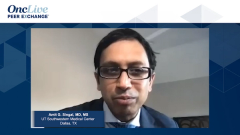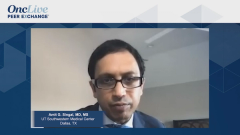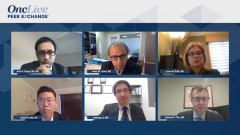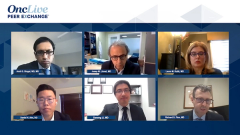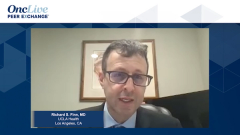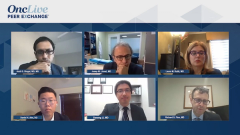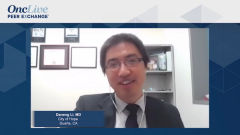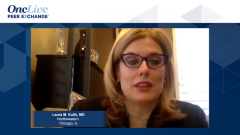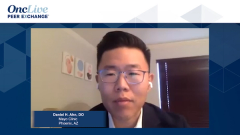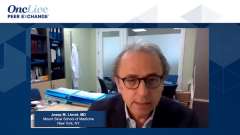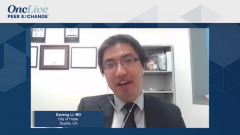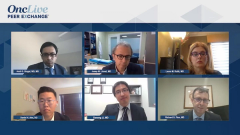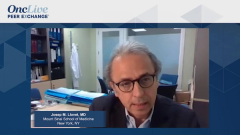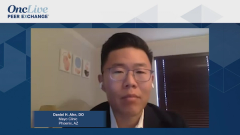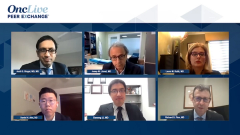
Ongoing Data for First-line Combinations in HCC
A summary of updates that explore ongoing data from various frontline combinations in unresectable HCC.
Episodes in this series

Richard S. Finn, MD: There is no overstating the impact that immunotherapy has had in our thought process in HCC [hepatocellular carcinoma]. We’ve gone from accelerated approval with nivolumab and pembrolizumab based on single-arm, phase 2 studies, which have been a little disappointing in the phase 3 settings with single agents. Although those phase 3 studies with nivolumab and pembrolizumab confirmed that they’re active in liver cancer, the phase 3 studies didn’t push the ball over the finish line, so to speak, so they didn’t get full approval.
There is now ipilimumab-nivolumab, which has accelerated approval in the second-line setting and is now moving into the front line, but we also have several other regimens being looked at in the front line and should get a readout in the next several months of some of these studies.
Josep, you, Dan, and I have been involved with pembrolizumab and lenvatinib. Can you comment on some of the data that were published in JCO [Journal of Clinical Oncology] last year?
Josep M. Llovet, MD: Sure. This was the Study 116 [KEYNOTE 524], with the combination of lenvatinib-pembrolizumab in the front line; it was a single-arm study of 100 patients. The objective response rate was up to 46% based on modified RECIST criteria. The disease control rate was 88%, which is outstanding considering frontline patients. Only 10% of the patients are progressing as a measurement of response.
Then the hard end points were very nice with a median survival of 22 months and a progression-free survival of around 9 months. These data are very strong. It got a breakthrough designation by the FDA, and accelerated approval is pending the LEAP-002 study, which Mount Sinai School of Medicine was involved too. The recruitment has been completed, and we are waiting for the first intervention. These are very promising data, but regarding this trial, it’s very rewarding to have this type of objective response in the front line for the patients and for the physician. It’s very good to have that.
Of course, there is always a balance between efficacy and adverse events in these trials with this combination certainly at 67% treatment-related adverse events, but it is still manageable. We think this may be another breakthrough in the coming years.
Richard S. Finn, MD: The thing I find interesting about that combination is that if we look at the phase 1b expansion, we have about 100 patients in that cohort and the response data, duration of response, look very similar to the single-arm atezolizumab-bevacizumab data, which eventually did pan out in the frontline setting. We’re very excited to see the readout from LEAP-002.
When we think about the combinations, we think about I/O [immuno-oncology] and TKI [tyrosine kinase inhibitor] and then I/O and I/O. The other I/O–TKI study that’s ongoing is the COSMIC-312 study, which is looking at cabozantinib and atezolizumab. Amit, can you give us some insight into that study?
Amit G. Singal, MD, MS: One of the interesting things about this trial is the fact that we’ve talked about cabozantinib’s mechanism of action [MOA], and the fact that cabozantinib acts on the c-MET and AXL are additional MOA points. It is thought that by this unique MOA, there may be more immunomodulatory effects for cabozantinib, and this is going to be evaluated in the COSMIC-312 study when its being used in combination with atezolizumab. Unfortunately, we don’t have any preliminary data from this combination, but all of us are waiting to see if the MOA and exciting preclinical rationale translate into improved outcomes when tested in patients.
Richard S. Finn, MD: Right, and it’s building on this recurrent theme with the TKIs that there are some immunomodulatory effects that bring in a more favorable immune-activated milieu, which can then be accentuated with the use of a PD-1 or a PD-L1 inhibitor. Josep touched on this before: not all TKIs are the same. They all have some different targets in vitro in the laboratory, and how this all translates into the clinic is still not known. With all these drugs, there is a little handwaving. The immune system is very complex, but the recurrent theme is that there’s a lot of smoke here. When you see things that are consistent observations, it builds excitement and momentum to study this.
Transcript Edited for Clarity


